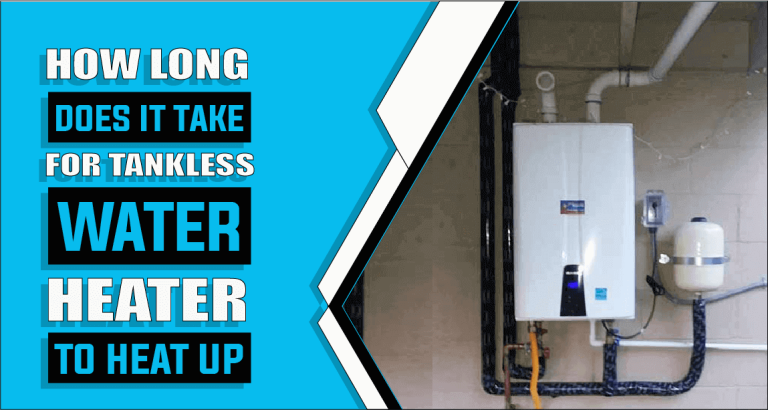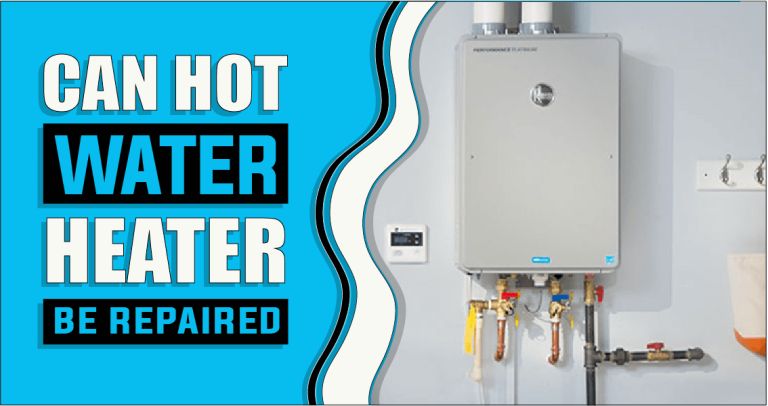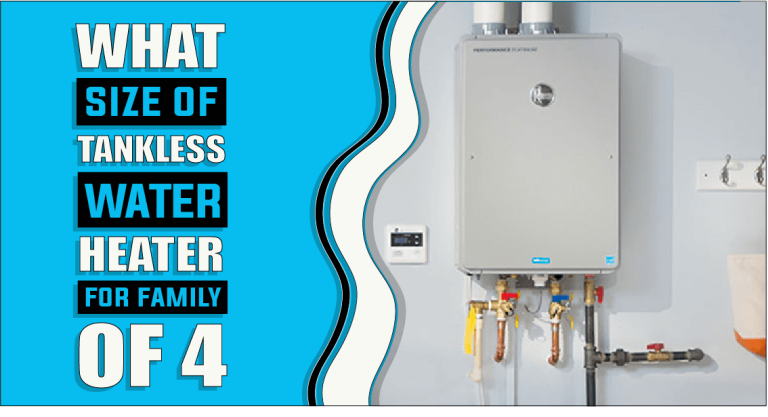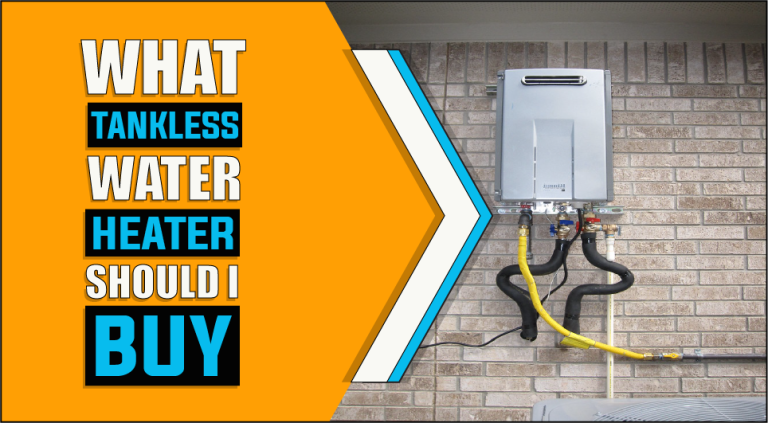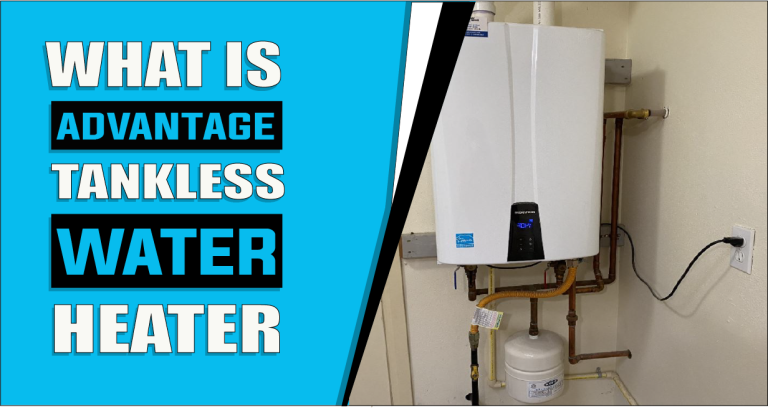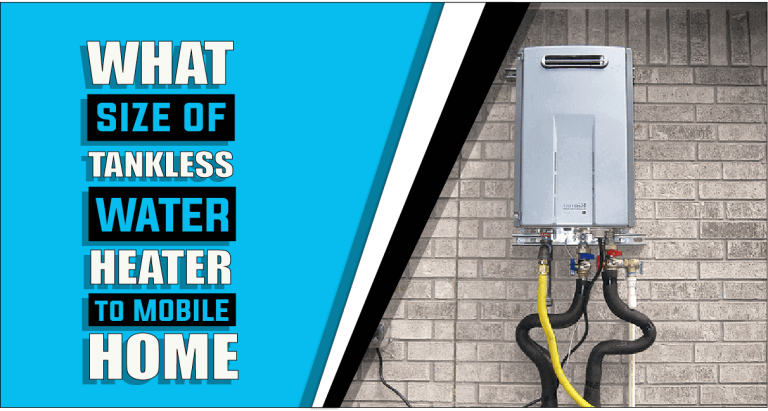Can Tankless Water Heaters Freeze – The Truth Reveals
When you’re relying on your tankless water heater during the winter, you’re likely already aware of the many advantages that come with having such an energy-efficient appliance. As a homeowner you made the switch from traditional tank-style heaters to more efficient tankless varieties, knowing how best to prepare for cold weather is an important part of keeping your home comfortable during chilly times. But the thing you must be worried about is whether a tankless water heater can freeze. In this blog post, we’ll explore can tankless water heaters freeze and provide some helpful tips so you can keep cozy all season long. So grab a cup of hot cocoa and settle in as we’ve covered all there to know about protecting your system and yourself from any potential frozen surprises that come with wintertime temperatures!
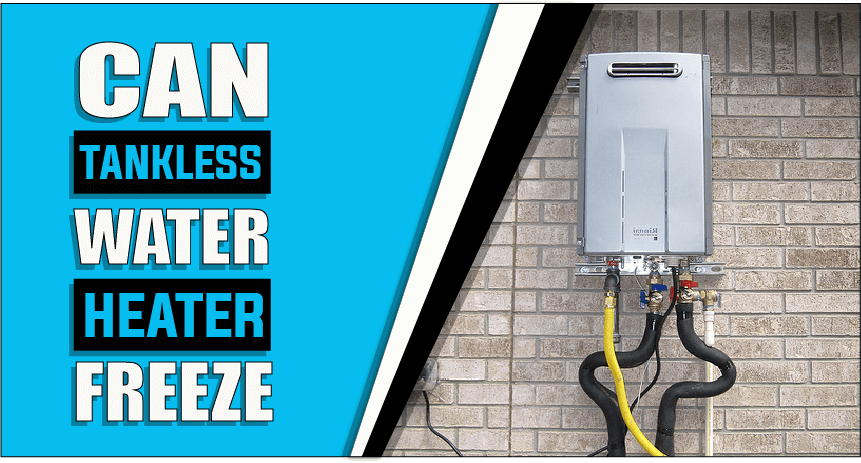
Let’s explore can tankless water heaters freeze
Can tankless water heaters freeze? The answer to this question can depend on the type of system you have in your home. Generally speaking, tankless water heaters are designed to be more resistant to freezing temperatures than regular storage tanks, but some models are much better at preventing this from happening than others. Tankless water heater systems that are equipped with digital temperature sensors and anti-freeze protection will generally be better able to protect themselves from freezing temperatures.
In addition, keeping the area around the unit free of debris and other insulation will also help prevent it from freezing. Without proper maintenance, however, any type of tankless water heater may still be susceptible to freezing in extremely cold weather. If a tankless water heater does freeze due to inadequate protections or maintenance, there is potential for some different problems including low water pressure or even cracked pipes or connections leading to leaks. It’s therefore important that homeowners pay close attention to their tankless water heaters during cold weather and make sure they are properly insulated and maintained.
Exploring Reasons Why Tankless Water Heaters Can Freeze
Though tankless water heaters are typically more resistant to freezing than tank-style units, there are two main reasons why tankless water heaters can freeze during cold weather.
- Weather Extremes
- Poor Maintenance or Installation
1: Weather Extremes
Cold weather temperatures can drastically impact the performance of a tankless water heater and make it more likely to freeze even when adequately protected and maintained; this is especially true during extended periods of low temperatures that cause the unit itself to become too cold and start freezing on its own. Homeowners should therefore assess the temperature in their area before installing a tankless system and consider investing in a backup solution for added protection against potential freezes.
2: Poor Maintenance or Installation
Secondly, when a tankless water heater isn’t properly maintained or installed, it can easily become prone to freezing as dirt and debris build up inside the unit over time, providing an easy conduit for cold temperatures to enter and cause damage; poor installation can also lead to leaks that allow cold air into the system, leading to a higher chance of freezing events occurring.
Tips To Prevent Your Tankless Water Heater From Freezing
Frozen tankless water heaters are a pain to repair and frequently require replacement. Consider taking prophylactic action to avoid this. By taking these steps, you can maintain a steady supply of hot water while avoiding dealing with pricey repairs. Here are some pointers to keep it secure:
1: Installing Extra Insulation Around Pipes and Fittings
With winter temperatures falling, it is important to make sure that your tankless water heater will not freeze. Installing extra insulation around the pipes and fittings of your water heater can ensure that the temperature remains above freezing even in cold weather spells.
2: Closing Valves Off During Cold Weather Spells
You should consider closing off the valves leading into it during particularly cold weather spells. This will prevent any cold air from entering the unit, which could potentially cause it to freeze up and stop working. Closing of the valves also prevents warm air from escaping out of the unit, thus helping maintain a higher temperature inside of it when external temperatures are lower than normal.
3: Ensuring An Adequate Flow Rate To Counter Any Freezing Temperatures
Your tankless water heater requires a certain flow rate through its system to maintain a comfortable temperature. If this rate drops below, then there is a risk that it could freeze up due to external low temperatures and cease functioning properly. Therefore, if you notice any decrease in hot water production or any unusual dips in flow rate, then you should adjust accordingly by increasing the flow rate to counter any possible freezing temperatures.
4: Turning Off The Power To The Unit When It Is Not In Use
When your tankless water heater is not being used for extended periods such as over long weekends or holidays, you need to turn off the power supply to the unit so as not to run the risk of having it freeze up due to low external temperatures while unsupervised.
5: Consider A Recirculation System
For those who experience extremely low outdoor temperatures during winter months or live in particularly frigid climates where regular precautions may not be enough, consider investing in a recirculation system for your tankless water heater unit.
This system works by piping hot water directly from outlets back into inlets via a continuous loop; constantly circulating through heated lines regardless of whether there are active taps open or closed off at home. This constant circulation keeps temperatures above freezing point all year round, providing more reliable protection against freezing conditions even under extreme circumstances, ultimately reducing potential costs associated with repairs or replacements due to cold weather-related damages!
Factors Impacting Freezing in a Tankless Water Heater
When determining whether a tankless water heater is suitable for use in colder climates or seasons several factors need to be taken into account to ensure its safe operation.
1: Ambient Air Temperature
The ambient air temperature is the outside temperature of the environment, which can significantly impact tankless water heaters in harsher climates. A tankless system needs to be able to withstand external temperatures as low as 32°F (0°C), otherwise, it runs the risk of freezing up and ceasing operation.
2: Insulation Levels Around the Unit
To protect tankless water heaters from freezing up in cold weather, the pipes and fittings must be adequately insulated to prevent external temperatures from impacting the unit. The insulation material should be able to withstand temperatures as low as -50°F (-46°C) for optimal protection.
3: Access to Warm Water Supplies
For tankless water heaters to function in cold climates, there must be access to warm water supplies. This could be provided by electric tankless systems or through gravity-fed tankless systems which rely on natural sources such as a hillside spring or solar-powered tank system.
4: Sources that can Counteract Freezing Temperatures
To ensure tankless water heaters remain operational in colder climates, they must be coupled with additional sources of energy such as pumps, heat exchangers, and boilers that can counteract freezing temperatures.
5: Stability of Power Supply
Tankless water heaters require a stable power supply to maintain optimal temperatures. If there are any issues with the electrical system or power outages, then tankless systems may be at risk of freezing up due to low temperatures and ceasing operation.
6: Other Environmental Factors that Affect Operation
Other environmental factors such as wind chill can also impact tankless water heaters and cause them to freeze up. This is because tankless systems rely on the ambient air temperature and if this is affected by external factors, tankless systems may not be able to maintain optimal temperatures leading to potential freezing issues.
What to Do If Tankless Water Heater Freezes
If you suspect that your tankless water heater has frozen, then it is important to take action as soon as possible to minimize any potential damage.
1: Regular Maintenance:
Performing regular maintenance on your tankless water heater can help keep it running efficiently and reduce the chances of any potential freezing events, as well as ensure that any blockages are removed from within the system itself; if you notice any issues with your unit, be sure to call in a qualified professional for assistance to prevent further damage from occurring.
2: Proper Insulation:
Installing proper insulation around your tankless water heater can help prevent cold air from entering it, thus reducing the chances of any freezing events occurring; this is especially important during winter months when temperatures tend to drop significantly lower than normal for extended periods.
3: Install an Anti-Freeze Kit:
Installing an anti-freeze kit is one of the most effective solutions to preventing a tankless water heater from freezing. The kit usually consists of a bypass valve and an anti-freeze loop that can be installed near the unit to help protect against freezing temperatures. These kits are designed to detect when the temperature drops below a certain threshold, allowing some of the heated water to flow through the pipes and help prevent any freezing or damage.
4: Insulate Pipes and Use Heat Tape:
Exterior pipes should be insulated with high-quality insulation wrap, which prevents heat loss along the length of the pipe. Additionally, heat tape can be used on interior pipes that may be exposed to colder temperatures. This helps keep temperatures consistent within these areas to ensure freezing does not occur.
5: Maintain Adequate Temperature Settings:
Finally, tankless water heaters should be set to operate at an adequate temperature to prevent freezing. Water temperatures of 120°F (49°C) or higher should be maintained to ensure that tankless systems remain operational during colder months.
Features of Tankless Water Heaters that Minimize Risk of Freezing
Tankless water heaters are designed to minimize the potential for freezing events by providing features that can help maintain optimal temperatures at all times.
1: Internal Freeze Protection Mechanisms
Tankless water heaters come with built-in freeze protection features that can help minimize the risk of freezing. These features are designed to detect when temperatures drop below certain thresholds and automatically shut off or go into standby mode to prevent any damage from occurring.
2: Pilot-free Ignition Systems
Pilot-free ignition systems are designed to ensure that tankless water heaters maintain optimal temperatures even in areas with lower temperatures. These systems rely on a spark plug or electric current to ignite the flame, which can help reduce the risk of freezing and maintain optimal performance.
3: Built-in Condensation Drain Pans
Condensation drain pans are built into tankless water heaters to help prevent frozen condensate lines. These pans are designed to collect any moisture that accumulates and is released from the heater during operation, thus minimizing the chances of freezing.
Frequently Asked Questions
If a tankless water heater freezes, it can cause significant damage to the unit and even result in costly repairs. The freezing of components within tankless water heaters is caused by temperatures that are too low for the system to operate correctly.
The freezing point of tankless water heaters will vary depending on the unit, but generally speaking, they can start to freeze at temperatures below 32 degrees Fahrenheit or 0 degrees Celcius.
The best way to prevent tankless water heaters from freezing is to install an anti-freeze kit, insulate any exposed pipes, and maintain adequate temperature settings. Additionally, tankless water heaters come with built-in freeze protection mechanisms that can help minimize the risk of freezing events.
Tankless water heaters can be a great option for areas with cold climates as long as the unit has been sized adequately to fulfill the hot water needs of your household. However, precautions must be taken to ensure that they remain operational during colder months.
Conclusion
Can tankless water heaters freeze? Yes, tankless water heaters can freeze if temperatures fall too low. However, tankless systems are designed to minimize the risk of freezing events with features such as internal freeze protection mechanisms, pilot-free ignition systems, and built-in condensation drain pans. Taking additional precautions such as installing an anti-freeze kit and insulating pipes can also help prevent tankless water heater freezing and ensure optimal performance in even the coldest climates. If you want to stay on the safe side about tankless water heater freezing, it’s best to consult a professional for advice on how to properly maintain your system to avoid any potential damage or costly repairs.
Ella John is passionate about helping her readers make the best choice when purchasing a heater. She understands that selecting a heater can be difficult and strives to provide information to help make the decision easier. Ella’s website, Heatersinfo.com, provides valuable insight into heating trends and types of heaters and tips on how to care for them. She also advises selecting the right heater based on individual needs and preferences. Her expertise in electronics makes her an excellent source of knowledge, and she is confident that anyone who visits her website will find the perfect heater information for their needs. Ella’s dedication to helping others make educated decisions about buying the right heater is unparalleled, and she hopes to continue offering her expertise for many years. With Ella’s help, finding the perfect heater can be a breeze!

